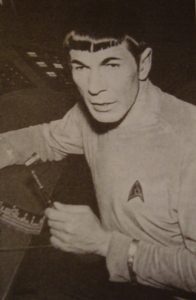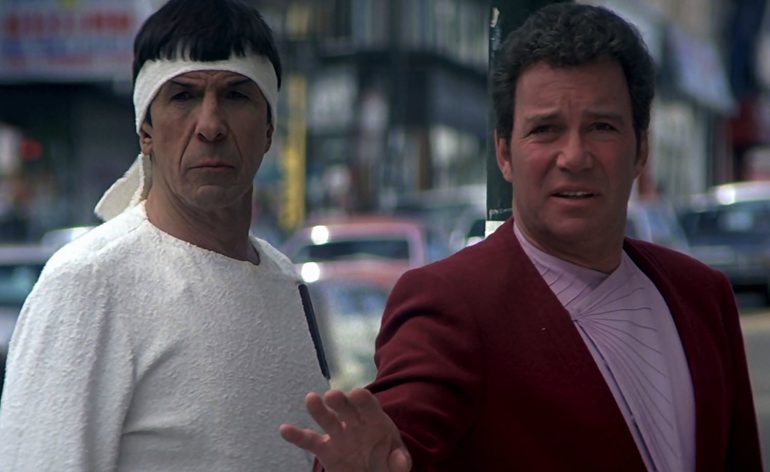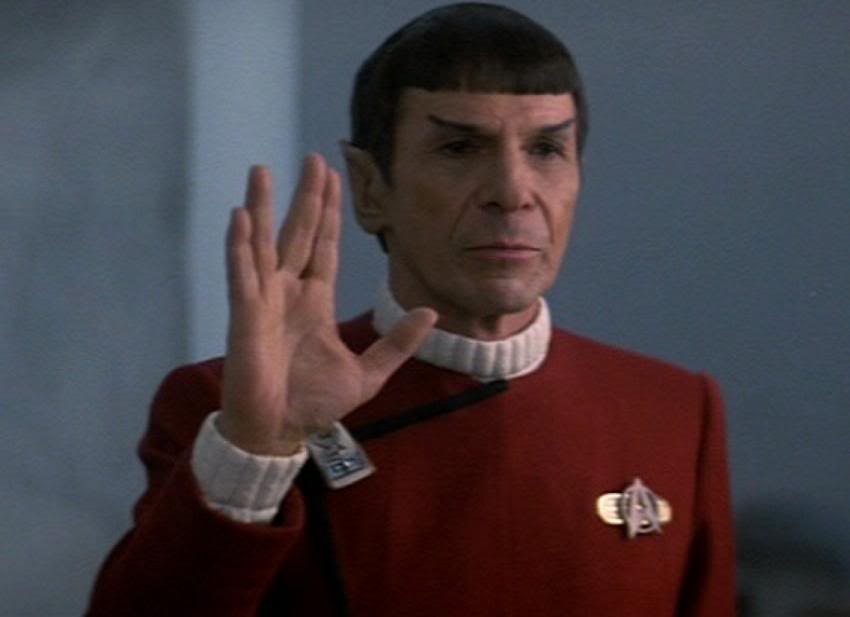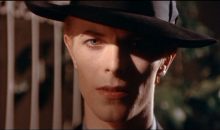Remembering Leonard Nimoy
“I met her at a funeral, she said ‘I don’t know what he meant to me. I just know he affected me.'”
—Dar Williams “Mark Rothko Song”
Confession: I haven’t seen all of the original Star Trek episodes. I haven’t seen half. I could probably name the ones I have seen on both hands and have a few fingers left over. I was too young, and my parents never showed much of an interest in science fiction. When I grew older I became a fan, but of the later television series. And while I have seen all of The Next Generation, Deep Space Nine, Voyager, and even Enterprise, there’s a gap in my sic-fi knowledge concerning the adventures of Kirk, Spock, McCoy and the rest.
But when the news broke earlier this week over Twitter, I felt a loss no less than any of my fellow sci-fi fans. Because while Leonard Nimoy never made an impression on me with his television work, his movie career impressed me.
I was eight years old when Star Trek IV: The Voyage Home was released in theaters. While the fourth film in the franchise, TVH is the conclusion of the trilogy properly began with Star Trek III: The Search for Spock. It features a time travel device previously used in the original series and features several minor characters from TOS, including Nurse Chapel and Yeoman Rand.
I knew none of this at age eight.
What I knew was that Spock was cool. He wore a headband to cover his pointy ears, making him look like Ralph Macchio in The Karate Kid. Spock was the first person I knew to say bad words in a funny way, “colorful metaphors” as they referred to in the script. Nimoy might be remembered for “Live Long and Prosper,” but for me, he’ll also be known for “double dumbass on you.” (Yes, I know Shatner said it first in the movie, but Nimoy sold it with his deadpan delivery.)
 Over time, as I made my way through the films and saw Spock appear in episodes of The Next Generation, I began to appreciate the character of Spock as something more than just the comic relief. Much is made of the way Star Trek blazed trails for television science fiction, like showing the first onscreen interracial kiss. But while watching an old TV special Nimoy narrated on Star Trek, I was reminded of something else. The network was against the whole idea of Spock in the first place. They felt his makeup made him look too much like a demon. Moreover, they didn’t think TV audiences would be able to identify with an alien character. This notion seems silly nowadays, but fifty years ago the idea of having an alien as a TV character seemed risky. When NBC sent out promotional material for Star Trek, their photographer had airbrushed out Spock’s ears to make him appear less demonic. It took a lot of convincing from Gene Roddenberry and Nimoy for the studio to allow Spock to be shown in all his pointy-eared glory.
Over time, as I made my way through the films and saw Spock appear in episodes of The Next Generation, I began to appreciate the character of Spock as something more than just the comic relief. Much is made of the way Star Trek blazed trails for television science fiction, like showing the first onscreen interracial kiss. But while watching an old TV special Nimoy narrated on Star Trek, I was reminded of something else. The network was against the whole idea of Spock in the first place. They felt his makeup made him look too much like a demon. Moreover, they didn’t think TV audiences would be able to identify with an alien character. This notion seems silly nowadays, but fifty years ago the idea of having an alien as a TV character seemed risky. When NBC sent out promotional material for Star Trek, their photographer had airbrushed out Spock’s ears to make him appear less demonic. It took a lot of convincing from Gene Roddenberry and Nimoy for the studio to allow Spock to be shown in all his pointy-eared glory.
 “Live Long and Prosper,” the Vulcan hand salute, cold unfeeling aliens, even the cliche that villains wore goatees, Nimoy was a part of all of it. While the original series may seem dated now, cliches become cliches for a reason: first because their ideas are both good and revolutionary for the time. I’ll miss Leonard Nimoy. Eight year old me will miss the neutral way he said “the hell I can” in Star Trek IV. Adult me will always admire all he did to advance science fiction with a character he initially resented but eventually came to embrace, Leonard Nimoy, I never knew you, but you helped shape my culture, and for that, I’m sorry you’re gone. RIP.
“Live Long and Prosper,” the Vulcan hand salute, cold unfeeling aliens, even the cliche that villains wore goatees, Nimoy was a part of all of it. While the original series may seem dated now, cliches become cliches for a reason: first because their ideas are both good and revolutionary for the time. I’ll miss Leonard Nimoy. Eight year old me will miss the neutral way he said “the hell I can” in Star Trek IV. Adult me will always admire all he did to advance science fiction with a character he initially resented but eventually came to embrace, Leonard Nimoy, I never knew you, but you helped shape my culture, and for that, I’m sorry you’re gone. RIP.






